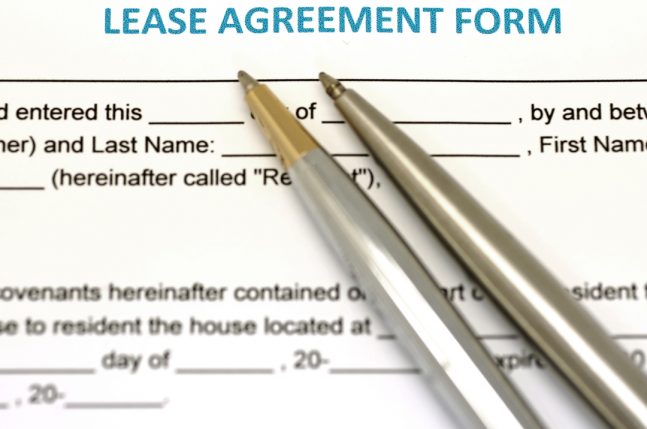Legal Articles
All About The Defamation Time Limit
May 31st, 2019 by | Defamation
Don’t Let Sleeping Slanders Lie The old law stated that in an action for defamation (to use the old language, libel and slander), the aggrieved party had six (6) years to sue. However, the defamation time limit was drastically changed in the noughties by legislative reforms to defamation law across the Australian States. In this… Read more »
Can a Killer Inherit via their Victim’s Estate? – The Forfeiture Rule
May 30th, 2019 by | Deceased Estates & Inheritance Claims
Can someone who kills another person inherit under the deceased’s last will? Thankfully this questions only arises occasionally but it is obviously a scenario that can cause significant further upset to an already difficult situation. What is the Forfeiture Rule? The forfeiture rule is a rule of public policy which prohibits a person who unlawfully… Read more »
Secret Recordings of Private Conversations
September 4th, 2018 by | Court Disputes
A recent South Australian Supreme Court decision – Nanosecond Corporation v Glen Carron (2018) has clarified the critical aspects of the Surveillance Devices Act 2016 as to the use of secret recordings of private conversations in civil litigation. In Nanosecond, a plaintiff had used his mobile phones to record 20 conversations with various persons in… Read more »
Enforcing the Rights of Retirement Village Residents
August 3rd, 2018 by | Retirement Villages
In a previous article I discussed the importance of the residence rules (“Retirement Village Residence Rules – What You Should Know“). I’d now like to discuss what happens in the situation where there has been a breach of the residence rules but the breach is allowed to continue – where enforcing the rights of retirement… Read more »
Facebook Defamation In the Comments Section
July 31st, 2018 by | Defamation
In this digital age that we live in, social media and the internet have no doubt changed the way we communicate and interact with one another. At the touch of a button, you can reach hundreds of people with your opinions and comments. So when it comes to negative comments, what constitutes Facebook defamation and… Read more »
Retirement Village Residence Rules – What You Should Know
July 23rd, 2018 by | Retirement Villages
If you are considering moving into a retirement village you should carefully consider the residence rules. All residents are entitled to peaceful enjoyment of their retirement village unit. The units are located in close proximity to each other therefore it is imperative that the residents have regard to the comfort and peaceful co-existence of their… Read more »
Statutory Demand Gets Debtor Company to Pay
July 17th, 2018 by | Court Disputes, Debt Collection
We have spoken before about the critical 21 day time limit of a statutory demand (see: “How to deal with a Statutory Demand” and “Statutory Demand: the 21 day guillotine”) which is often ignored by a debtor company and generally results in payment of the debt, costs and interest. Debtor Company Has 21 Days to… Read more »
Commercial Tenant Not Paying Rent On Time
July 9th, 2018 by | Property & Leases
Unfortunately, it is not uncommon for landlords to encounter problems with commercial property tenants not paying rent on time. To make matters worse, this type of tenant often won’t pay until they have received multiple requests from the landlord or their managing agent. In my experience, no amount of pleading will convert a tenant who… Read more »
Option to Renew Lease (Commercial)
June 28th, 2018 by | Property & Leases
The Retail and Commercial Leases Act 1995 (“Act“) provides that a lease governed by the Act must have a minimum term of 5 years including options. The parties to the lease, and particularly the tenant, may not want to commit to a 5 year term – so an option to renew lease will provide the… Read more »
Buying a Franchise – Pros and Cons
June 20th, 2018 by | Franchises
Thinking about buying a franchise? There are several factors that need to be considered. What’s good and what’s bad about a franchise? Franchises – The Good 1. The business is already up and running There will be an initial outlay of money for the franchise but the purchaser/s should hit the ground running. There shouldn’t… Read more »
Statutory Wills in South Australia
June 12th, 2018 by | Wills & Estate Planning
In order to validly make a Will, a testator must have testamentary capacity. Section 7 of the Wills Act, 1936 empowers the Supreme Court of South Australia to authorise a Will to be made on behalf of a person who lacks testamentary capacity, in certain circumstances. Such Wills are known as a Statutory Wills. In… Read more »
Termination of the Retirement Village Contract Due to Illness
June 5th, 2018 by | Jason Meyer, Retirement Villages
Retirement villages provide accommodation for older people who wish to live independently but in a communal setting. It is important to understand that a retirement village is not an aged care facility and is not suitable to accommodate people with dementia or other illness where a high level of care is required. Residents who become… Read more »
Retirement Village Deferred Management Fees
May 29th, 2018 by | Retirement Villages
A Retirement Village Deferred Management Fee (“DMF”) is the single largest expense associated with a retirement village contract. Because it is such a large expense it needs to be properly understood. What is a Deferred Management Fee? The DMF is the fee charged by the retirement village operator to generate income. That income is used for… Read more »
Property Co-ownership Agreements
May 22nd, 2018 by | Property & Leases
Where two or more people own property, there needs to be complete understanding between the parties regarding their respective rights and obligations. This is particularly important when the co-owners are not married. Very often, the parties will assume they share the same views on how a property is to be maintained and whether or not… Read more »






















